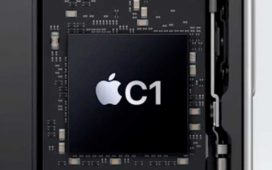The job market for software developers has always been competitive, but we’re about to experience a talent crunch unlike anything we’ve ever seen in this industry.
Generative AI is everywhere, and anyone who works in software is trying to figure it out. While developers experiment with AI, business leaders are grappling with what it means for their teams. Most of the discussion revolves around what and who AI can replace.
The reality? AI is here, and it’s up to us, as software developers, product builders, and organizational leaders, to figure out how we keep up with this phenomenon very few understand. We have only scratched the surface of what AI can do since it became mainstream, yet we’re already talking about how it will replace human intuition. Something about this doesn’t seem right.
Today’s more pressing question is, what do we do about the AI skills gap?
Crunch time for developer talent
Developers are under immense pressure to deliver new features faster and more securely, which provides an opportunity for AI to fill a gap in the talent market.
AI introduces a fundamental shift in how we think about software development. When it comes to developer talent, AI can, and most likely will, automate the repetitive work that junior developers currently do. AI-driven tools can unlock developer productivity and efficiency by rapidly building and deploying proofs of concept (POCs), auto-generating sections of code, auto-running A/B tests, and beyond.
If we replace developers with machines, we won’t have engineers trained to do the more subjective and thoughtful work required to move software forward. The long-term impact of AI will be far more detrimental than beneficial, without the talent that is required to innovate, responsibly.
Redefining the role of a junior developer
For the last 20 years, we’ve had a multitude of strategies to reduce the amount of duplicative, lower-level code (e.g., frameworks, libraries, and open source) that developers have to write. The goal has been to build on the shoulders of those who came before you so that you could focus on the things that made your application, and specific contributions to it, unique and special.
The goal is the same with AI, just accelerated. It’s about automating the creation of the code that is repeated, and then having your developers spend time reasoning and thinking about the code that is unique and requires deep thought and customization.
Without developers moving up through various career milestones, who will be here to mind the AI skills gap we’ve created?
Preparing for the developer skills shortage, now
The focus needs to shift to training, specifically to investing in the next generation of software developers. Literally in a matter of weeks, everything changed. Just a few months ago, proficient developers wrote perfect code. Today, developers need to be experts in areas like prompt engineering, testing, and training large language models, or dealing with non-deterministic outcomes.
Software development will always be about experimentation, but delivering the next great feature that brings value to your customers will always be the priority. How do we continue to do this? The industry must prepare for the imminent developer skills crunch by investing in educational initiatives, upskilling programs, and fostering an environment that nurtures talent and promotes continuous learning.
At the junior developer level, that means continuing to hire talent and ensuring that developers gain early exposure to how AI will impact their workflow and approach to building software. For example, an entry-level developer may no longer be responsible for authoring code from scratch, so giving them exposure to validating and testing pre-authored code authored by AI will be essential. Hands-on experience writing code early on in a developer’s career is critical to developing their understanding of the systems they will eventually help build and maintain.
We need to provide our engineers who are just embarking on their careers an opportunity to learn in this space. Then, as AI becomes increasingly integrated into our workflows, there will be less emphasis on whose job is replaced, and more attention paid to how talent is trained to leverage AI. Future developers will spend the better part of their career thinking creatively, solving complex problems, and building the future. Who wouldn’t want to be part of that?
Jim Rose is the CEO at CircleCI.
—
Generative AI Insights provides a venue for technology leaders—including vendors and other outside contributors—to explore and discuss the challenges and opportunities of generative artificial intelligence. The selection is wide-ranging, from technology deep dives to case studies to expert opinion, but also subjective, based on our judgment of which topics and treatments will best serve InfoWorld’s technically sophisticated audience. InfoWorld does not accept marketing collateral for publication and reserves the right to edit all contributed content. Contact doug_dineley@foundryco.com.
Copyright © 2023 IDG Communications, Inc.












